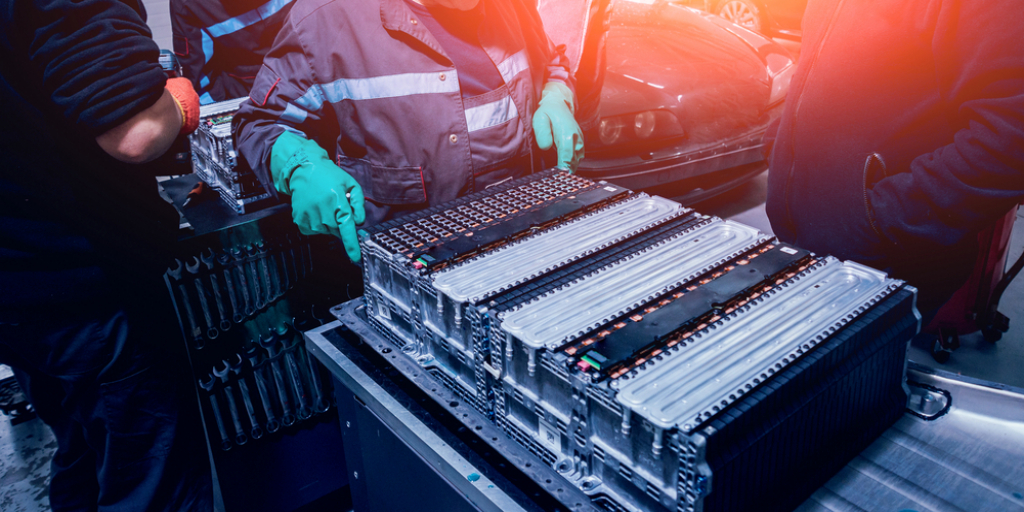Lithium Battery Power Stations: The Future of Energy Storage
Introduction
As the demand for renewable energy sources continues to rise, the need for efficient energy storage systems becomes increasingly crucial. Lithium battery power stations have emerged as a promising solution to address the challenges associated with renewable energy storage. These power stations utilize lithium-ion batteries, which are known for their high energy density, long cycle life, and fast charging capabilities. This article explores the potential of lithium battery power stations as the future of energy storage.
Advantages of Lithium Battery Power Stations
1. High Energy Density: Lithium-ion batteries possess a high energy density, enabling them to store a large amount of energy in a compact size. This characteristic is especially advantageous for applications where space is limited, such as urban areas or remote locations.
2. Long Cycle Life: Lithium-ion batteries have a longer cycle life compared to other battery technologies. They can be charged and discharged numerous times without significant capacity loss. This longevity makes them a cost-effective option for energy storage.
3. Fast Charging: Lithium-ion batteries can be charged at a much faster rate compared to other battery technologies. This allows for quick replenishment of stored energy, making them ideal for situations where a sudden surge in energy demand occurs.
4. Scalability: Lithium battery power stations can be easily scaled up or down depending on the energy requirements. This flexibility allows for the integration of renewable energy sources into the grid, ensuring a stable and reliable power supply.
Applications of Lithium Battery Power Stations
1. Renewable Energy Integration: Lithium battery power stations play a critical role in integrating renewable energy sources into the grid. They can store excess energy generated from sources like solar or wind power during periods of low demand and release it during peak demand, ensuring a consistent energy supply.
2. Off-Grid Power Supply: In remote areas where access to the grid is limited or non-existent, lithium battery power stations can provide a reliable source of power. These power stations can be deployed in rural communities, construction sites, or disaster-stricken areas, ensuring access to electricity for essential services.
3. Electric Vehicle Charging Infrastructure: The growing adoption of electric vehicles requires an extensive charging infrastructure. Lithium battery power stations can serve as fast-charging hubs, allowing electric vehicles to quickly recharge their batteries, reducing range anxiety and promoting the widespread use of electric vehicles.
4. Backup Power Supply: Lithium battery power stations can act as backup power supplies during grid outages. This is particularly useful in areas prone to natural disasters or regions with an unreliable grid infrastructure. The stored energy can be used to power critical facilities like hospitals, data centers, or emergency services.

Challenges and Future Outlook
While lithium battery power stations offer numerous advantages, there are challenges that need to be addressed to fully realize their potential. The production and disposal of lithium-ion batteries can have environmental implications if not managed properly. Additionally, the cost of lithium battery power stations needs to be reduced to make them more accessible to a broader range of applications.
However, technological advancements and economies of scale are driving down the cost of lithium-ion batteries, making them more affordable and viable for widespread deployment. Furthermore, research and development efforts are focused on improving battery performance, safety, and recyclability.
Conclusion
Lithium battery power stations are poised to revolutionize the energy storage landscape. With their high energy density, long cycle life, fast charging capabilities, and scalability, these power stations offer a promising solution to address the challenges associated with renewable energy integration, off-grid power supply, electric vehicle charging, and backup power. As technology continues to advance and costs decrease, lithium battery power stations will play an increasingly significant role in shaping the future of energy storage.
-
 The starter battery is one of the most essential components of a vehicle, providing the initial power needed to start the engine. When it comes to choosing the right battery supplier for your vehicle, there are several factors to consider, including reliable performance, compatibility, and safety. In this article, we'll provide a comprehensive guide to choosing the best starter battery...En savoir plus
The starter battery is one of the most essential components of a vehicle, providing the initial power needed to start the engine. When it comes to choosing the right battery supplier for your vehicle, there are several factors to consider, including reliable performance, compatibility, and safety. In this article, we'll provide a comprehensive guide to choosing the best starter battery...En savoir plus -
 The agricultural industry has always been at the forefront of technological advancements, constantly seeking innovative solutions to improve efficiency and productivity. With the recent development and widespread adoption of high-power lithium batteries, agricultural tools have undergone a remarkable revolution. These powerful batteries have enabled farmers to enhance their operations, reduce costs, and minimize environmental impact. One of the significant...En savoir plus
The agricultural industry has always been at the forefront of technological advancements, constantly seeking innovative solutions to improve efficiency and productivity. With the recent development and widespread adoption of high-power lithium batteries, agricultural tools have undergone a remarkable revolution. These powerful batteries have enabled farmers to enhance their operations, reduce costs, and minimize environmental impact. One of the significant...En savoir plus -
 Introduction In recent years, the demand for efficient and reliable power storage solutions has been on the rise. This is particularly true in industries such as renewable energy, electric vehicles, and telecommunications. One technology that has gained significant attention is the Lithium Iron Phosphate (LiFePO4) 48V battery. This article aims to explore the features, advantages, and applications of this battery...En savoir plus
Introduction In recent years, the demand for efficient and reliable power storage solutions has been on the rise. This is particularly true in industries such as renewable energy, electric vehicles, and telecommunications. One technology that has gained significant attention is the Lithium Iron Phosphate (LiFePO4) 48V battery. This article aims to explore the features, advantages, and applications of this battery...En savoir plus -
 The LiFePO4 battery, or lithium iron phosphate battery, is a type of rechargeable battery that has gained popularity in recent years due to its high energy density, long cycle life, and improved safety compared to other lithium-ion batteries. One of the key factors that make LiFePO4 batteries attractive to consumers is their durability and longevity. In this article, we will...En savoir plus
The LiFePO4 battery, or lithium iron phosphate battery, is a type of rechargeable battery that has gained popularity in recent years due to its high energy density, long cycle life, and improved safety compared to other lithium-ion batteries. One of the key factors that make LiFePO4 batteries attractive to consumers is their durability and longevity. In this article, we will...En savoir plus -
 The 100Ah 12V LiFePO4 battery is a highly efficient and long-lasting power solution that has been gaining popularity in various industries. This battery is made of Lithium Iron Phosphate, or LiFePO4, which is known for its stability, safety, and durability. One of the main advantages of the 100Ah 12V LiFePO4 battery is its high energy density. This means that...En savoir plus
The 100Ah 12V LiFePO4 battery is a highly efficient and long-lasting power solution that has been gaining popularity in various industries. This battery is made of Lithium Iron Phosphate, or LiFePO4, which is known for its stability, safety, and durability. One of the main advantages of the 100Ah 12V LiFePO4 battery is its high energy density. This means that...En savoir plus -
 Introduction: Communication base stations are the backbone of our modern wireless communication networks. They enable the transmission and reception of signals between mobile devices and the network infrastructure. These base stations require a reliable and efficient power source to ensure uninterrupted communication services. In recent years, lithium battery technology has emerged as a promising solution for optimizing the performance of...En savoir plus
Introduction: Communication base stations are the backbone of our modern wireless communication networks. They enable the transmission and reception of signals between mobile devices and the network infrastructure. These base stations require a reliable and efficient power source to ensure uninterrupted communication services. In recent years, lithium battery technology has emerged as a promising solution for optimizing the performance of...En savoir plus -
 In today's fast-paced world, vehicles have become an essential part of our daily lives. Whether it's for commuting to work, running errands, or going on a road trip, we rely heavily on our vehicles to get us where we need to be. However, one of the most common problems vehicle owners face is a dead or weak battery. This can...En savoir plus
In today's fast-paced world, vehicles have become an essential part of our daily lives. Whether it's for commuting to work, running errands, or going on a road trip, we rely heavily on our vehicles to get us where we need to be. However, one of the most common problems vehicle owners face is a dead or weak battery. This can...En savoir plus

